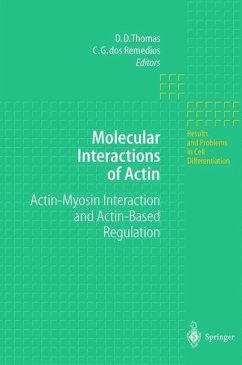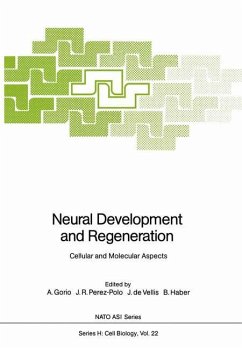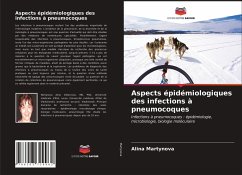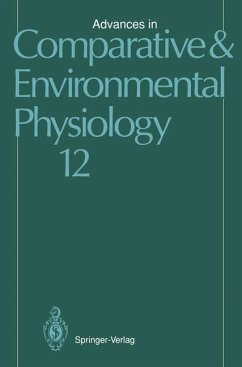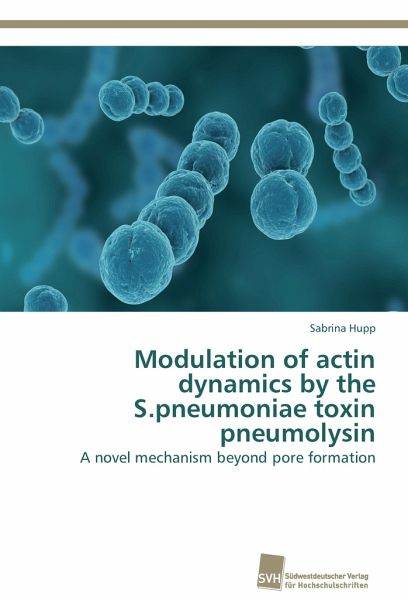
Modulation of actin dynamics by the S.pneumoniae toxin pneumolysin
A novel mechanism beyond pore formation
Versandkostenfrei!
Versandfertig in 6-10 Tagen
46,99 €
inkl. MwSt.

PAYBACK Punkte
23 °P sammeln!
The pneumococcus is one major cause of bacterial meningitis, a wide-spread disease of newborn and immune-compromised individuals, which shows CFRs up to 50% in countries with low medical standards. Bacterial spreading affects the meninges, and the sub-meningeal cortex tissue, whereat the presence of pneumolysin, a major virulence factor of the pneumococcus, is prerequisite for the development of a severe outcome of the infection and associated tissue damage. Pneumolysin belongs to the family of cholesterol-dependent cytolysins, which use membrane-cholesterol as receptor and oligomerize to big ...
The pneumococcus is one major cause of bacterial meningitis, a wide-spread disease of newborn and immune-compromised individuals, which shows CFRs up to 50% in countries with low medical standards. Bacterial spreading affects the meninges, and the sub-meningeal cortex tissue, whereat the presence of pneumolysin, a major virulence factor of the pneumococcus, is prerequisite for the development of a severe outcome of the infection and associated tissue damage. Pneumolysin belongs to the family of cholesterol-dependent cytolysins, which use membrane-cholesterol as receptor and oligomerize to big aggregates, which induce cell lysis and cell death by disturbance of membrane integrity. This work has revealed a new picture of pneumolysin, whose cell-related properties go beyond pore formation and cell lysis. A direct interaction of the toxin with actin leads to cell-shape remodeling in astrocytes, which potentially disturbes neuronal homeostasis and favors bacterial tissue penetration.







